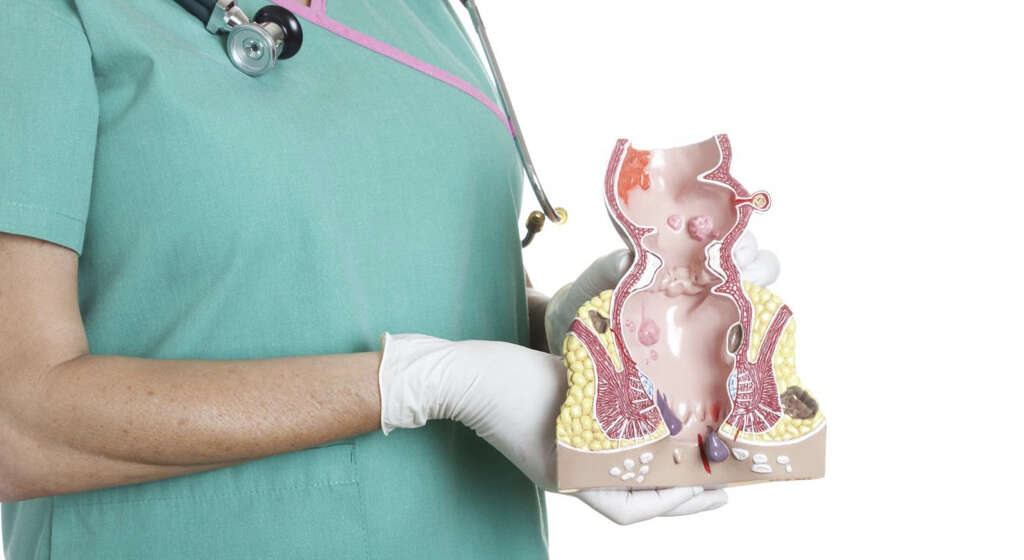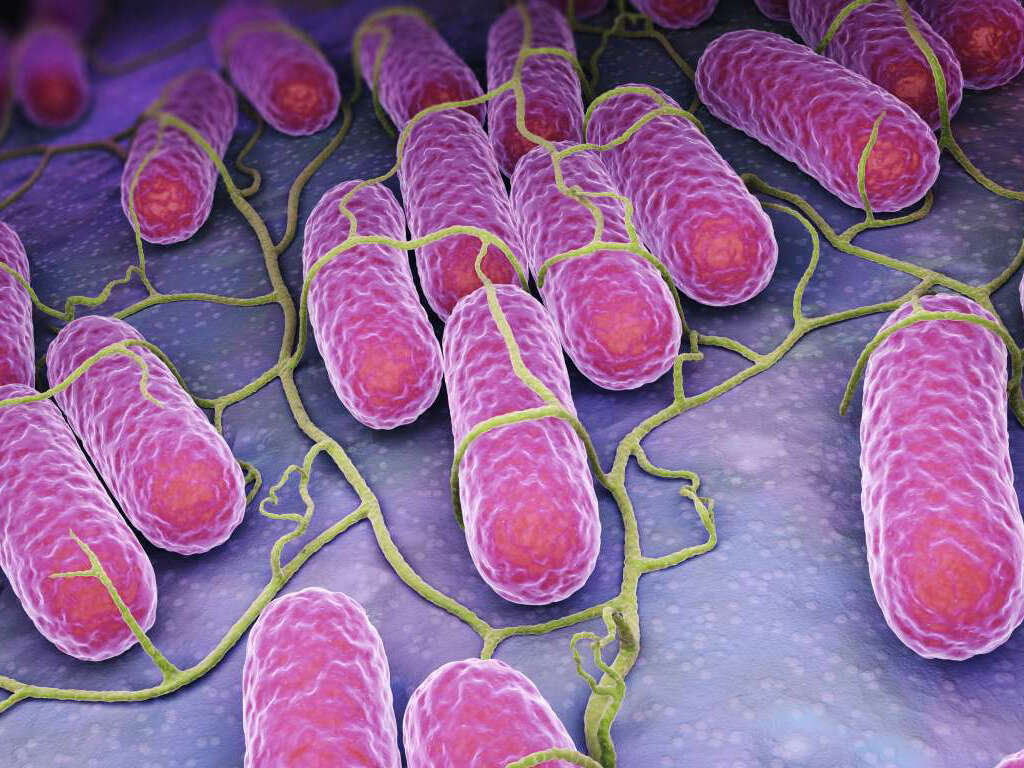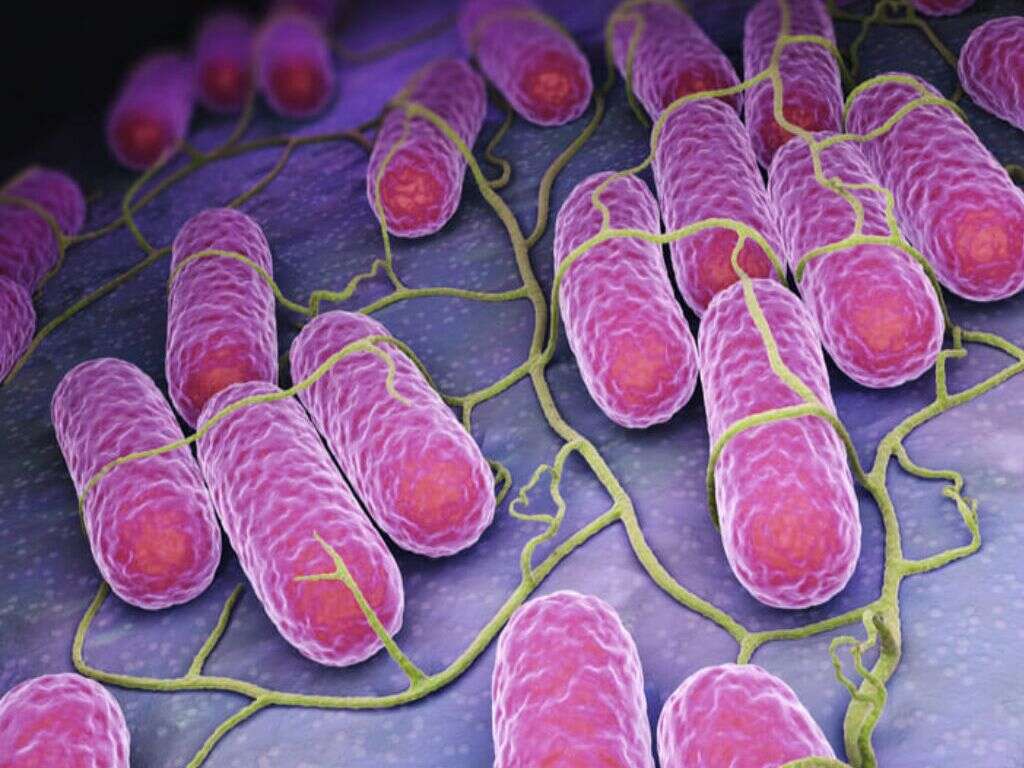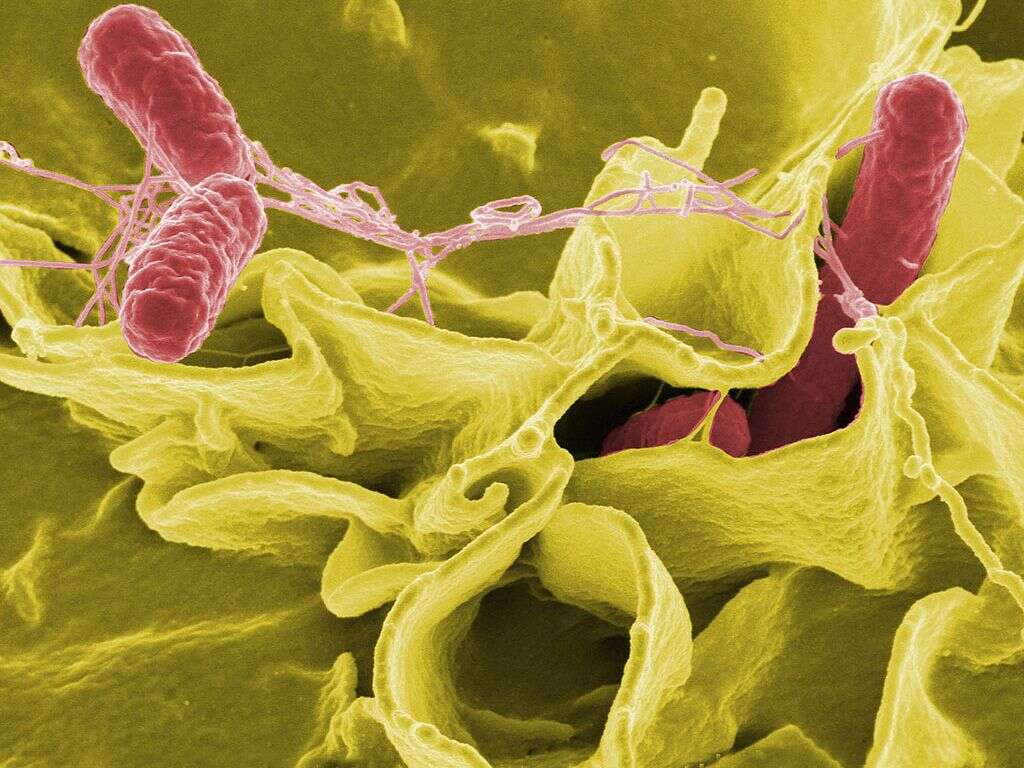What Is Gastrointestinal Disease?
Gastrointestinal diseases are among the most common type of ailments that people are likely to face. The symptoms of such diseases can be unpleasant and they can also be embarrassing, but they are usually not too serious. Some conditions can be more serious, however, and some diseases will be with the patient for the rest of their life.
Most people will try and pass off the symptoms to begin with, but it is always a good idea to see a doctor if the symptoms persist. Treatment is available in many cases and a change in lifestyle choices may also be necessary for some people. Here’s a look at some of the most common gastrointestinal diseases you are likely to encounter.

1. Helicobacter Pylori Infections
Helicobacter pylori is a common variety of bacterium that is often found in our digestive system. Most of the time it will do us no harm, but it will cause problems for us sometimes. Infections of the digestive tract by the bacterium are one of the most common types of all gastrointestinal diseases.
H. pylori infections are most common in childhood. It can cause symptoms like stomach cramps, diarrhea, and constipation, but is usually not serious. The bacterium is also thought to be responsible for many cases of peptic ulcers. Treatment for H. pylori is typically achieved with antibiotics and medication to reduce the acidity of the stomach may also be used.

2. Peptic Ulcer Disease
As mentioned, Helicobacter pylori is a potential underlying cause of peptic ulcers, but there are other potential causes. This includes the use of certain medication that hinders the ability of the stomach lining to protect itself from our digestive juices, and this includes popular NSAIDs like ibuprofen.
Peptic ulcers include ulcers in the stomach and the small intestine, and both types will have the same causes and symptoms. They can be very painful, and they can also lead to potentially severe complications if they are left untreated. Treatment typically involves antibiotics and medication that helps to reduce acidity in the stomach.
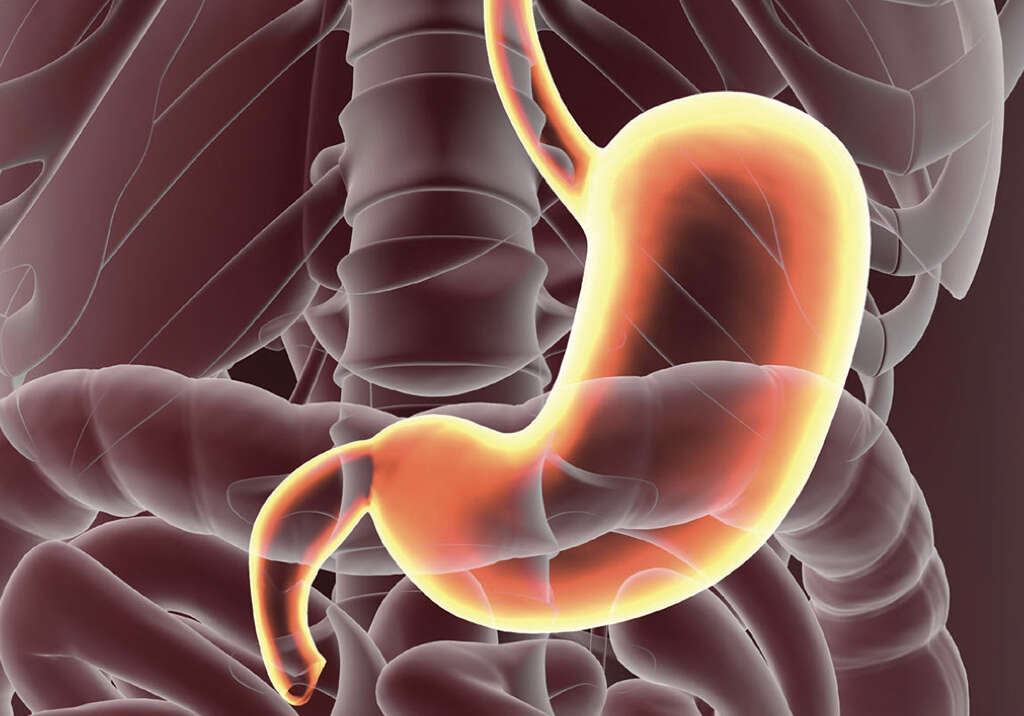
3. Irritable Bowel Syndrome
Irritable bowel syndrome is a condition where the patient is especially sensitive to certain foods and some other factors. It makes the patient more likely to suffer from symptoms like pain and diarrhea and the severity of the symptoms can be very uncomfortable. In some cases, irritable bowel syndrome can have a considerable negative impact on the patient’s life.
Treatment of the condition tends to involve having the patient avoiding certain types of food, but this is not always practical. Avoiding other triggers like stress can help but, again, this is something that can be difficult to do. Medication is also available that can help to at least lessen the severity of the symptoms.

4. Celiac Disease
Gluten is a type of protein that is commonly found in grains like wheat, from which flour is made. This means gluten is found in many types of food, such as baked goods, and pasta. While this is not a problem for the vast majority of us, it is very problematic for many others.
Some people have celiac disease which is a type of autoimmune condition. In this instance, it means that the cells of the stomach lining are being attacked by the patient’s immune system. The attacks are triggered whenever the patient eats gluten, and the only known treatment is for the patient to avoid gluten altogether.

5. Gastroesophageal Reflux Disease
Gastroesophageal reflux disease is also known as GERD, acid reflux and, more commonly, heartburn. The latter name comes from the symptom of a burning sensation in the chest and esophagus that the condition causes. The symptom is caused by the acidity of digestive juices that escape from the stomach into the esophagus.
The juices are able to escape due to a weakened esophageal sphincter, which would otherwise keep the stomach tightly shut. Antacids are often used to treat the symptoms while other medication may be used to help limit acidity in the stomach. Surgery may be necessary in the more severe cases.
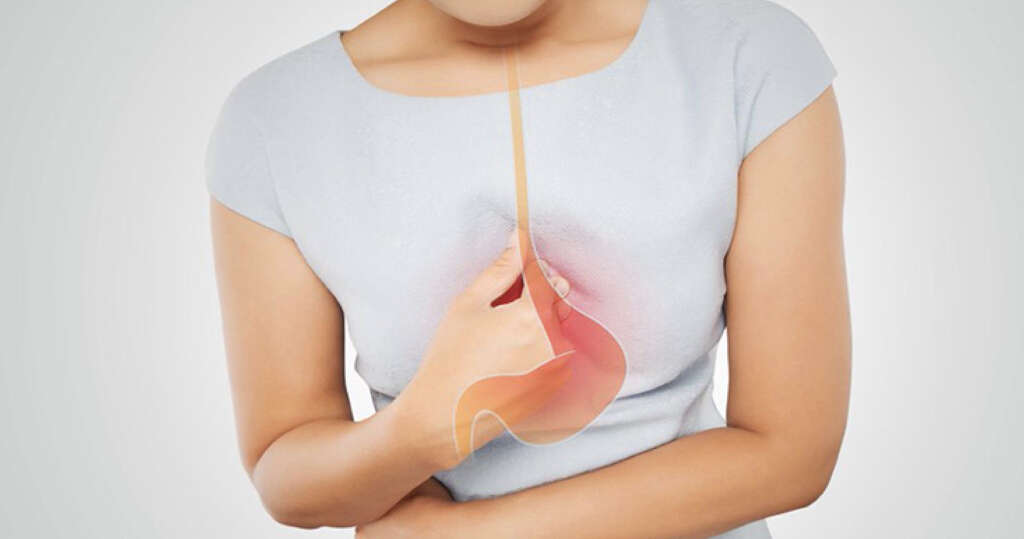
6. Crohn’s Disease
Chron’s disease is a condition that causes inflammation in parts of the digestive system. The large intestine is most commonly affected, although it can affect any other part of the gastrointestinal tract from the anus to the mouth. Symptoms of the condition include persistent diarrhea, weight loss, and abdominal pain.
Patients can also experience more severe symptoms such as mucus or blood in their stools. The condition is not well understood, although it is thought there is a genetic link. Other factors like stress and diet may also be contributing factors. Medication is available to help treat the symptoms, and surgery may be needed in some cases.
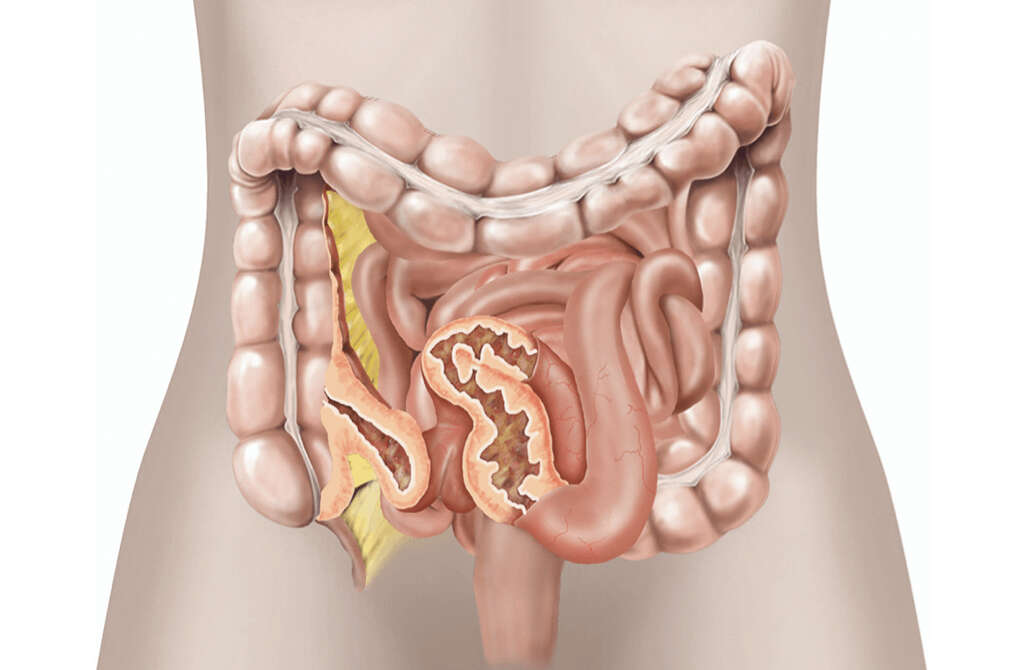
7. Lactose Intolerance
Lactose is a type of sugar that is found in cow’s milk and other dairy products like cheese. Most people have no difficulty in digesting this sugar, but some people don’t produce the enzyme that is needed. This means they have difficulty digesting lactose, and this can cause them a number of problems.
The symptoms of lactose intolerance include bloating, stomach pain, diarrhea, nausea, and wind. There is no cure for the condition but attacks can be prevented by avoiding milk and other products that contain lactose. There is thought to be a genetic link as to why people have it, and it may also sometimes be brought on by damage to the digestive system.

8. Ulcerative Colitis
Ulcerative colitis is a condition that affects the colon. The cause of the condition is not known, although it is thought it is something to do with an abnormal immune response. Stress and diet are other factors that can make the symptoms worse. Symptoms of the condition include diarrhea, and the need to pass stools more frequently than usual.
Other symptoms include abdominal pain, loss of appetite, fatigue, bloody stools, and rectal bleeding. The patient will also likely develop ulcers in their colon, and this can result in pus and mucus appearing in their stools. Treatment typically involves medication that will help to treat the patient’s symptoms.

9. Colorectal Cancer
Colorectal cancer, also known as colon cancer, is one of the most common causes of fatalities caused by cancer. One of the reasons colon cancer is dangerous is that the disease shows no symptoms in the early stages. This means the cancer can be progressing without the patient knowing, and it can be too late by the time it is diagnosed.
Another type of gastrointestinal disease is polyps. These are growths that develop in the colon. They are usually quite harmless, but one variety has the chance of developing into colon cancer. This makes it wise to be regularly screened for cancer because catching it early significantly increases the chances of making a recovery.
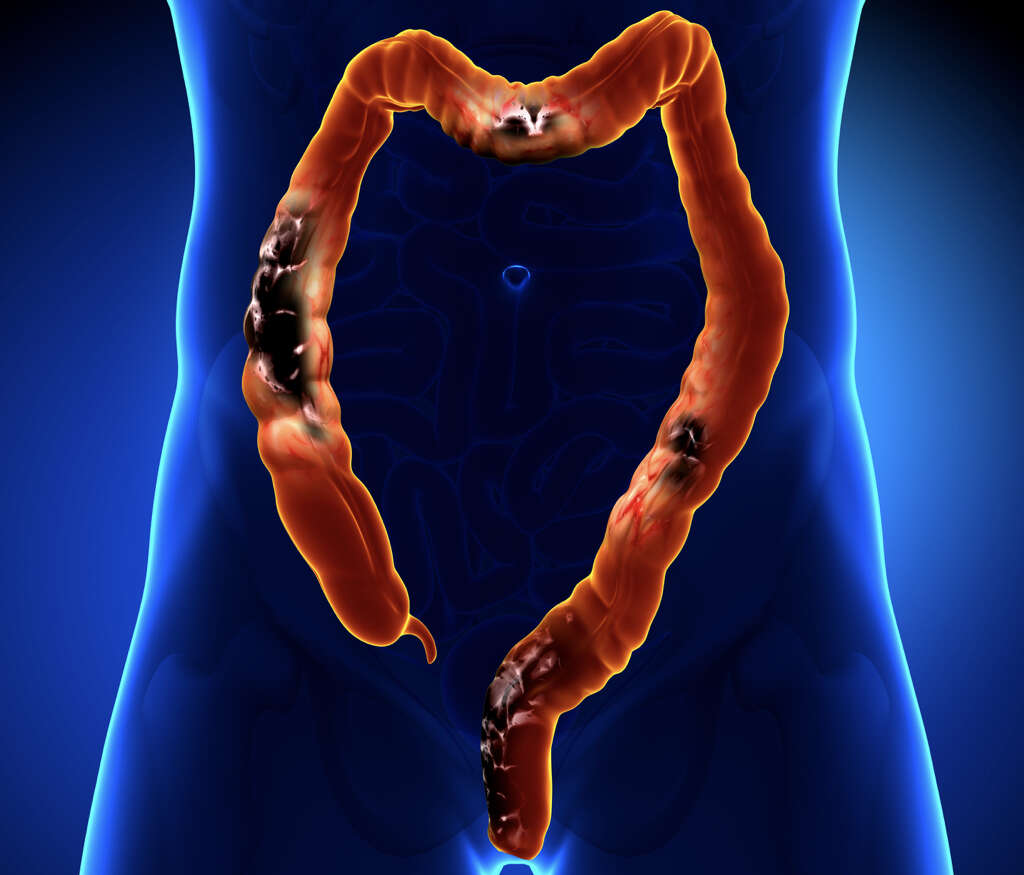
10. Hemorrhoids
Anal cushions are small areas of tissues located at the opening of the anus. These cushions can become inflamed in a condition known as hemorrhoids. Hemorrhoids can be internal or external, and external hemorrhoids look similar to a bunch of grapes. They can be painful and itchy, and they will also tend to bleed when the patient passes stools.
Treatment for hemorrhoids usually involves topical creams, although surgery is sometimes necessary. Another condition that affects the anus is anal fissures. These are small tears that can occur after the patient passes particularly large stools. They will usually heal themselves, and healing can be helped if the patient ensures their stools are soft.
